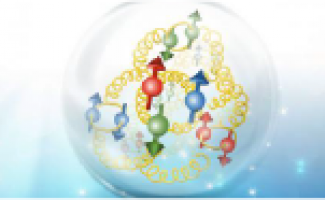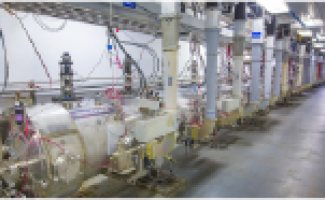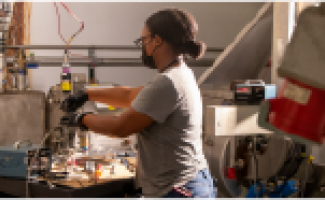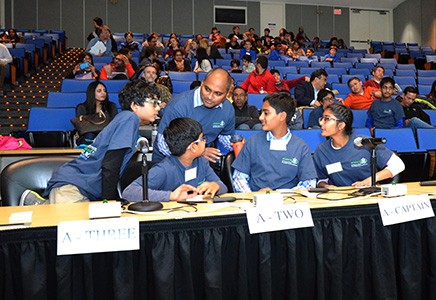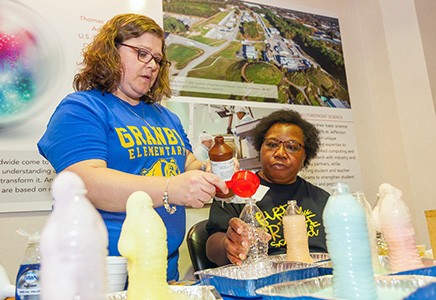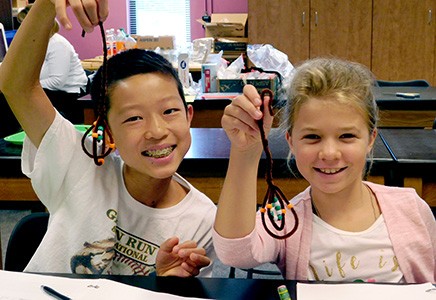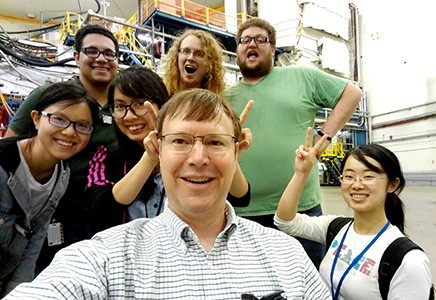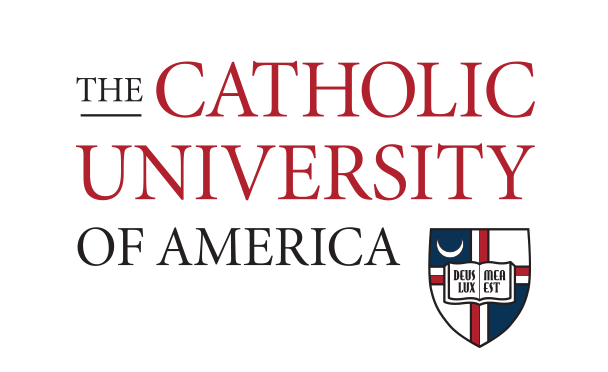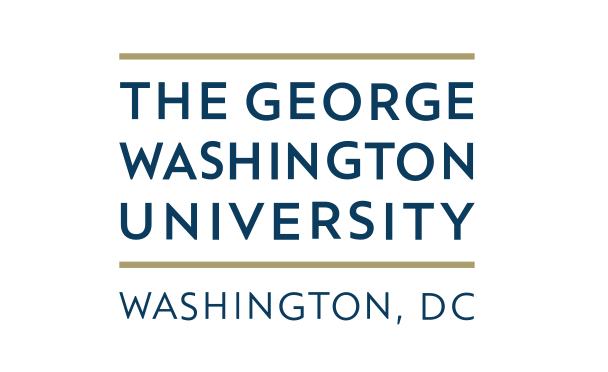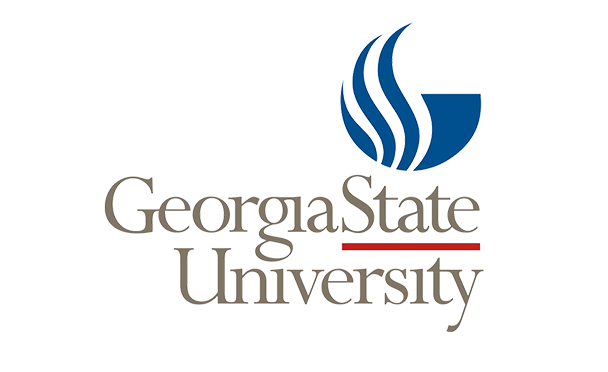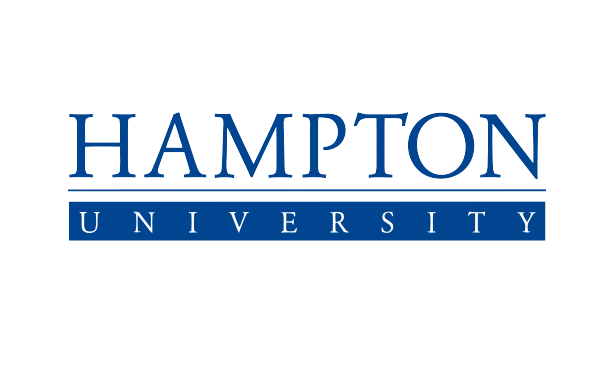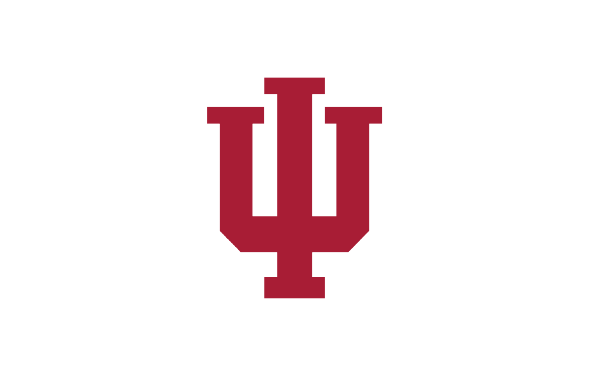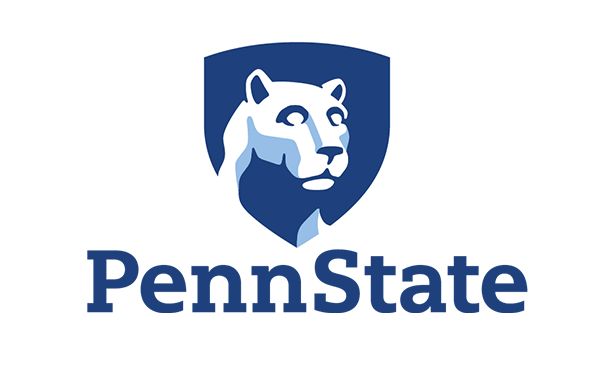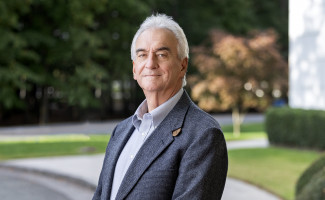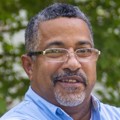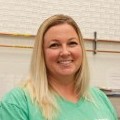Veteran budget manager for nuclear programs creates second career at Jefferson Lab
To many Newport News neighbors, the U.S. Department of Energy’s Thomas Jefferson National Accelerator Facility is a local institution—a landmark, of sorts, and a facility that is known to select its teammates from an international pool of ambitious and passionate applicants.
For Rick Anderson, the lab was once a bit of a white whale—a curiosity being developed along a corridor of his everyday commute from his home in the Denbigh section of Newport News to his first posting at the Dominion Energy Surry Nuclear Power Station in the 1980’s (he later returned to Surry for a ten-year stint as budget manager of the facility).
“I’d always wondered about the lab,” he admitted. “I was simply fascinated by the Continuous Electron Beam Accelerator Facility (CEBAF) when I learned about it through the circles of people working in nuclear energy. It paralleled what I was working on in Surry and was related to what we were doing in terms of being a part of a shared, cutting-edge scientific community.
“From the very beginning stages of the lab, my curiosity was up,” Anderson continued. “I wanted to know where these lab scientists were going with their research.”
Though Anderson was captivated by the work of the lab, he says he was too fully enveloped in his career at Dominion Energy to consider applying to join the lab’s team then. Instead, Anderson settled for following the lab’s development from outside the gates.
“I would literally be travelling to work every day and I’d see the CEBAF under construction,” Anderson recalled. “I realized it was going to be a huge facility and then I was done-in when I finally saw the CEBAF accelerator track. My curiosity was absolutely piqued. I started to see a lot of people going into work there, but I wasn’t one of them then.”
As the lab flourished and grew over the decades, Anderson continued to rise through the ranks at Dominion Energy, being transferred several times between the company’s headquarters in Richmond and its facility in Surry.
A career in alternate energy made possible by alternate arrangements
During one posting at the company’s headquarters in Richmond, Anderson lived part-time on his 45-foot, 1973 motorboat. He spent five nights a week aboard for three-and-a-half years.
“During that position, it got to be too much to go up and down the road between my home in Norfolk at the time and my work in Richmond—particularly with the hours I was working,” Anderson remembered. “I had a boat and I brought it up the James River and into the Appomattox River to Hopewell, where I would live on it during the week.
“Living on the boat was a little bit different, especially when we had a winter storm come,” he laughed. “I would watch the Deadliest Catch, hear the wind blowing, see the snow coming down, and the boat would rock back and forth. It was an immersive experience.”
After mustering through three chilly winters, Anderson surrendered his sea legs to the cold and moved part time to a condo only a short walk from work. However, he befittingly never changed the name of the boat, Andante.
“It means, ‘slow, methodical waltz,’” Anderson explained. “It fit the boat perfectly.”
Andante at work and in retirement…and then back at work
Anderson also recognizes that Andante is an apt descriptor of his modus operandi.
“In general, I’m in for the marathon and not the hundred-yard dash,” he said. “I generally believe in chipping away at the rock little by little. At work, I believe bringing a group together for a common goal requires consistency and teamwork—it is a slow, methodical waltz.”
After a 34-year career at Dominion Energy, Anderson retired in 2015 to be an enthusiastic grandparent on the Little League circuit, cheering on his three grandkids.
“I took an early retirement at age 60 because I realized I needed to concentrate more on life-balance, and my grandchildren were right there,” he said.
Then, when his son and grandkids moved out of state, Anderson doubled-down on efforts to restore his Ocean View, Norfolk home.
“My hobby is woodwork,” he said, going on to illustrate his Andante approach. “I put down solid-oak, hardwood floors throughout my four-story house—carrying-in and laying each piece of wood.”
Anderson also used his retirement to indulge in his passion for refurbishing furniture.
“I love to find old pieces of furniture on the side of the road and I reimagine them,” he explained. “I have also restored furniture and brought pieces back-to-life that are from as early as 1890.”
To facilitate his hobby, Anderson drives a 4x4 truck and keeps a furniture dolly on-hand.
“That furniture will find its way to the back of my truck,” he laughed. “I was going to stay retired, but I decided that before I totally rebuild my house and everything in it, I needed to get back to work.”
Learning that he had the unique skillset and experience in nuclear energy that used similar budgeting and cost reporting systems that the lab used, Anderson applied for an open position. Anderson came aboard in October 2023 as the Budget and Program Support Manager, also known as the Lab’s Budget Officer.
Brandishing spreadsheets to combat budget missteps
“I’m an obsessive-compulsive-type of person, and I live my life by spreadsheets,” Anderson admitted. “I’m so at-home in front of a spreadsheet. I know enough to be dangerous. Of course, when I go on vacation, I have a checklist of what to pack. I also have one for everyday tasks, and I physically check things off every single morning.”
At the lab, Anderson has learned that the Department of Energy (DOE) has an expectation that the lab will successfully carry out its mission at or below budget.
“My budget analysts know that we are the monitors of the budget and budget targets. They know that we have to be accurate, responsive and concise when it comes to supporting our Budget Owners and the Management Team,” he explained.
Anderson noted that, while the lab is mostly funded by the DOE, there are a multitude of funding sources his team must also track, including from universities, the state and other labs. His team is dutiful about making sure to track each project and keep their customers informed so that they stay within budget.
“I wouldn’t be working here if I didn’t believe in the good that comes out of the research that the lab produces,” Anderson said. “I don’t want to work anywhere where the end product or research didn’t benefit people. That’s the way I felt about Dominion’s nuclear power plants, and that’s the way I feel about this lab.”
Luckily, for the projects that are included in the lab’s budget, Anderson is happy to report that the teams have a well-earned reputation for diligent planning and adherence to the plan.
“We have a very disciplined group here,” Anderson said. “Coming in, I was surprised at how disciplined they are with their budget responsibilities.”
Regarding his team, which currently consists of three budget analysts and three senior budget analysts, Anderson praised their dedication.
“My team is the real energy source here,” he said. “I couldn’t ask for a better team. They deserve every credit in the world. My job here is simply to try to knock down any barriers and make things more efficient and consistent for them.”
Further Reading:
Jefferson Lab Budget and Program Support Office
By Carrie Rogers


